Inside the IR fight club: employer versus employer
Major employer groups warned the government they would publicly campaign against it unless a landmark agreement between big business and the union was junked.
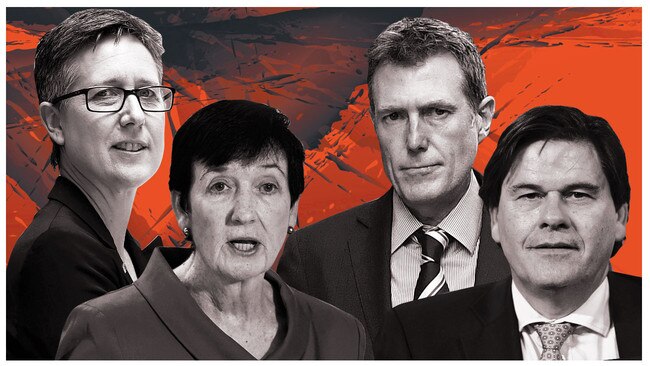
Inside the Perth office of the Attorney-General’s Department, Christian Porter was preparing for an important moment in the Coalition’s quest to reach an unlikely consensus on industrial relations.
Despite Scott Morrison, at the height of the COVID-19 pandemic, urging employers and unions to “put their weapons down”, minimal progress had been made during four months of confidential discussions by members of five working groups.
But Porter had what shaped as a cut-through opportunity: a historic joint proposal by the Business Council of Australia and the ACTU to rewrite the nation’s enterprise bargaining laws.
Porter had been briefed on the proposal, developed during months of clandestine negotiations between BCA chief executive Jennifer Westacott and ACTU secretary Sally McManus. The deal, kept secret from other key employer groups, had been endorsed by key BCA members and a special meeting of the ACTU executive.
Presenting the proposal to the enterprise bargaining working group, Porter thought the landmark agreement by big business and organised labour was worth considering and hoped it would be sensibly discussed by the meeting’s participants during the next two hours.
How wrong he was.
Because of the pandemic, the meeting in September last year was conducted on a government video platform. Employer and union chiefs were in Sydney and Melbourne. Along with a dozen government officials, Master Builders Australia chief executive Denita Wawn was at the Attorney-General’s Department on Canberra’s National Circuit, seated directly opposite Westacott.
As Porter spoke, a blindsided Wawn felt herself shaking with rage and decided she had to walk out of the meeting room before she lost it. Not only did she regard the proposal as giving preferential treatment to union-backed enterprise agreements at the expense of the MBA’s preferred non-union deals, she felt betrayed by Westacott, who had been privy to months of employer-only discussions but had not mentioned her parallel dealings with McManus. The pair did not speak during the meeting.
“I just gave her a death stare,” Wawn told colleagues later.
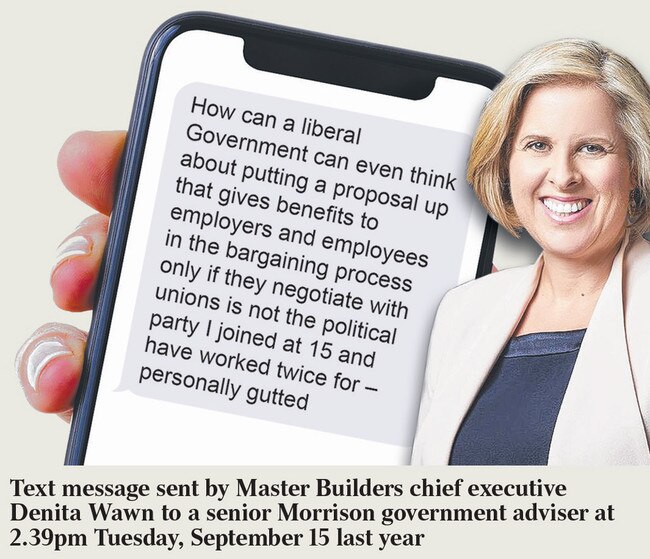
Wawn’s anger was shared by three other employer groups — the Australian Industry Group, the Australian Chamber of Commerce and Industry, and the Australian Mines and Metals Association. Ai Group chief executive Innes Willox, who was not present at the meeting, later called Porter’s announcement of the BCA-ACTU proposal a “WTF moment”.
During the previous months, Wawn and Westacott had been part of a WhatsApp group that included officials from the Ai Group, the ACCI and the AMMA. Privately exchanging tactics and information about the working groups, AMMA chief executive Steve Knott dubbed the employer bloc the Group of 5.
As the meeting continued, Wawn was outside the room, exchanging electronic messages with Knott. A new WhatsApp group was set up immediately, excluding the BCA. “We voted them off the employer island,” Knott tells The Weekend Australian.
Wawn returned, telling the meeting: “I don’t know about anyone else but I’m blindsided by this. I feel as though we have been backed into a corner by the BCA and the ACTU. This is totally inconsistent with freedom of association, and why on earth would we give preferential opportunities for unions and not non-union agreements?”
Union leaders and government officials watched on as Knott told Porter the employers would now proceed in future bargaining meetings as the Group of 4.
“The employers spat the dummy,” one participant says. “It was worse than any ALP factional meeting. They just completely lost the plot.”
After the meeting, the aggrieved employers went into overdrive, warning cabinet ministers and the Prime Minister’s office they publicly would campaign against the government on industrial relations unless Porter ditched the proposal.
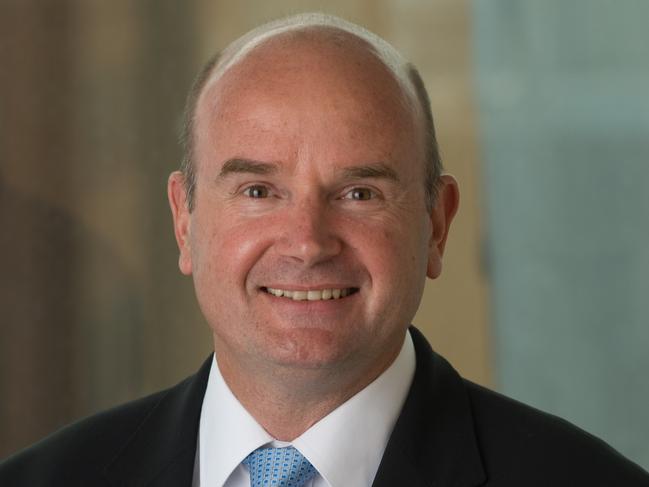
“We started campaigning against the ACTU-BCA proposal the minute it was tabled,” Knott says. “The same day the Group of 4 met and worked out a government minister, PM, backbencher and key stakeholder engagement process. This included electronic and face-to-face meetings to kill off this absurd two-stream proposal; such dialogue commenced on the same day and continued for several days until the Group of 4 were assured it wasn’t government policy.”
In a text message to a senior government adviser, seen by The Weekend Australian, Wawn asked how a Liberal government could even think about putting up a proposal she said favoured union agreements. “(This) is not the political party I joined at 15 and have worked twice for — personally gutted,” she wrote.
The next day, Knott says Porter separately contacted him, Wawn, Willox and James Pearson, who was the ACCI’s chief executive at the time. “After realising the (proposal) was a dud he then engaged in dialogue that saw the BCA rejoin the Group of 4 in future consultations,” Knott says.
Given the tactics deployed by the business lobbyists, it is evident why Porter and the government failed to achieve a broad consensus.
While the Senate crossbench was blamed by the Coalition for the gutting of the workplace relations bill, the government's inability to capitalise on a once-in-a-generation pandemic and forge agreement in the working groups beyond its hardcore employer constituency made last month’s parliamentary result where only a single schedule of casual employment changes was legislated almost inevitable.
Based on extensive interviews by The Weekend Australian with the key players involved in the secret working group negotiations, it is evident the productive relations that emerged in the first weeks of the pandemic soon fell back to the toxic distrust and politicking that have pervaded industrial relations for decades. The combatants agreed to come to the table, but their hands were never far from their holsters.
At the first meetings of the working groups, employers and unions spent hours arguing about “overarching principles” the government proposed be applied to the working groups. According to documents obtained by The Weekend Australian, one of the principles was that “no worker should be worse off as a result of industrial relations reforms”.
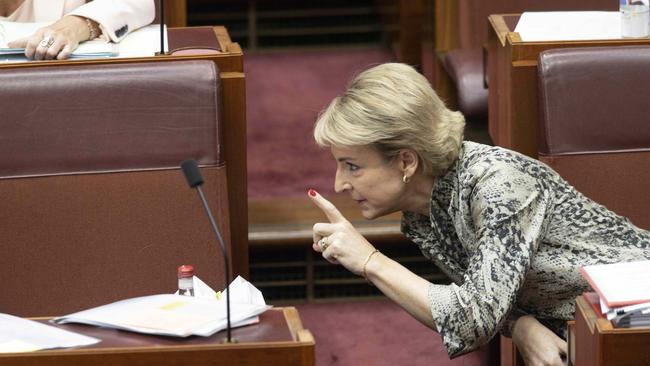
“We wasted hours discussing shared goals,” one senior employer figure says. “In the end, we couldn’t get an agreement so we just put the principles aside and moved on.”
McManus says the employer refusal to commit to no workers being worse off was reflective of their intransigence and spurred her to seek out negotiations with Westacott.
“The ACTU is not going to forget how those employer groups had no intention of pursuing changes that benefited both workers and employers,” McManus tells The Weekend Australian. “They wanted it all one way.”
Council of Small Business Organisations Australia chairman Mark McKenzie agrees, revealing how he and the Master Grocers split away from the employer bloc after the first meeting and acted as a stand-alone third grouping as they were concerned the interests of their members would be damaged. “I have always shied away from attacking other industry groups but there were two definite villains in this, ACCI and AiG,” he says. “What is different to pre-COVID is instead of employers arguing with unions, we had employers arguing with employers, which is bizarre.”
Willox criticises the decision by COSBOA to pursue a separate agreement with the ACTU over casual employment.
“It’s not as if we stood there and said nyet to everything. In fact, it was exactly the opposite,” he says. “We put an enormous amount of effort in. We just didn’t put up batshit crazy ideas, that was all. For an organisation (COSBOA) that claims to not have much to do with unions, it was an interesting look to see them cuddling up to the ACTU. They’re obviously their new best friends.”
The so-called Group of 4 takes a more conciliatory, albeit condescending, tone towards the BCA. Its mantra is that industrial relations is not core business for the BCA, despite it representing some of the nation’s biggest companies with workforces operating under union enterprise agreements.
“I don’t think they had bad intentions but I don’t think they understood the ramifications of putting 90 per cent of the (private sector) workforce in a very slow lane to get enterprise agreements approved,” Willox says.
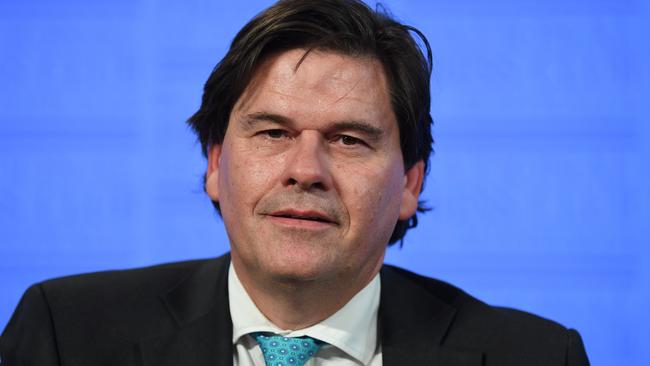
Knott claims McManus reached out to “non-IR groups like COSBOA and the BCA as they were low-hanging fruit in the ACTU’s usual divide and conquer strategy”.
“COSBOA is an empty drum. It made a lot of noise but achieved nothing, while IR is not core business for the BCA. The left-wing IR neanderthals wouldn’t agree to anything other than beating up on employers and McManus was impotent to bring about incremental change as she’s not the decision-maker, the affiliates are,” he says.
Westacott says pointedly that BCA member companies employ more than one million Australians, “so they’re enterprise bargaining experts who see first-hand the blockages that hobble the system and hold Australians back — of course they should have a voice at the table”.
“After an extensive process with our members, some of the largest users of enterprise bargaining in the country, we came to the table with a very clear picture of the problems that have left the system in terminal decline and the sensible ways we could fix them,” she tells The Weekend Australian.
“We took the Prime Minister’s call to find solutions seriously, looking for ways to co-operate, putting the old warfare and ideologies aside to break through the last decade of stop-starts on workplace relations. We went into this process with a clear focus on getting something done, finding agreement and positioning Australians to earn more in stronger businesses.”
Westacott says the proposal with the ACTU was “based on a set of agreed principles, but it was always open for the government and the group to broaden the scope”.
McManus says it was a big call for the union movement to participate in the working groups, especially given their narrow policy scope and the Coalition’s hostility to unions.
“Effectively you are entering the lion’s den,” she says. “It’s not a safe space, if I can put it that way. What happened during the working groups, the secretariat early on tried to establish ground rules, things that everyone could agree on, and one of the key principles said workers would not be worse off as a result of the changes. There was a huge struggle about that. The BCA didn’t have a problem with that. COSBOA didn’t have a problem with it. Obviously, it’s a key thing for us.
“But all the other employer groups, the minute they knew that ground rule was going to be there, they just said we don’t need the ground rules. It was put by the secretariat that we sign up to them. We were prepared to but others wouldn’t.
“Porter had said workers should not be worse off and I kept saying to Porter, ‘You can’t expect representatives of working people to walk into this process (without them).’ When those groups wouldn’t agree to that, and the government would not insist on it, that made it impossible for us to have productive discussions.”
Knott describes McManus’s position that she pursued talks with the BCA after employers rejected the principles as “a bullshit argument, straight from their ‘all bosses are bastards’, them and us, capital versus labour culture wars”. “In the ACTU mind no worker should be worse off when business circumstances changed dramatically was disingenuous and more about using vulnerable people for political pointscoring,” he says.
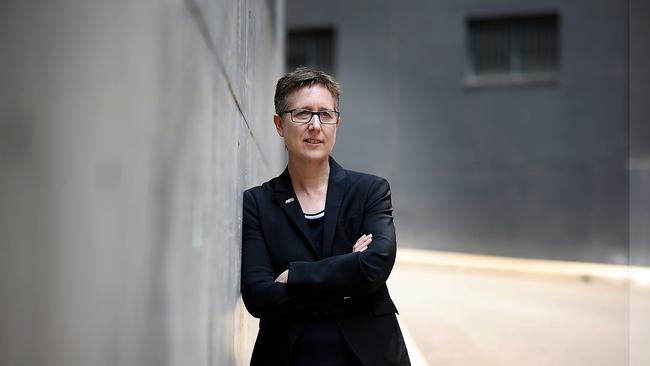
“Their often stated position that they hoped to reach some form of agreement out of the IR working group process is at odds with their tour de force political lobbying seeking to kill off any legislative changes, save for beating up employers who underpay wages. McManus is simply seeking to develop an IR working group narrative different to what actually occurred.”
So hostile did relations become between employers that COSBOA chief executive Peter Strong accuses ACCI workplace policy director Scott Barklamb of telephoning COSBOA members to attack Strong. “Scott Barklamb was ringing our members and saying, ‘Pete Strong doesn’t understand small business and COSBOA doesn’t support small business’, all because ACCI didn’t like what we did. It’s a bizarre thing to do. It’s just not professional,” he says.
Asked to respond to the claim, ACCI acting chief executive Jenny Lambert says: “ACCI totally rejects as fanciful any suggestion that we approached the discussion in anything other than a positive and professional way.” She says ACCI participated in the working groups in “good faith and worked extensively with its members, some of which are also COSBOA members, to achieve consensus with the unions on solutions that would be in the best interests of jobs and the economy”.
But COSBOA’s McKenzie says the rival employer groups, with the exception of the BCA, persisted with “their same old approach despite the post-COVID environment”.
“You have this cabal of employers, particularly Ai Group and ACCI, who seem intent on maintaining the status quo,” he says. “I would argue that they did not act in good faith with the fact that we are dealing with a once-in-a-lifetime crisis.
“We were looking to take advantage of opportunities to deliver IR flexibility. The art of negotiation is you have to give something to the other side. You don’t just say no, and say: ‘My argument is stronger so you have to agree with me, and if you don’t I’ll go and work the political system and undermine you anyway.’
“We have lost the essence of what the industrial relations system is all about which is a mechanism by which employers and their advocates negotiate with employees and their advocates to develop mutually acceptable outcomes that share the benefits of productive gains. That’s what the whole system was designed for. Instead, it’s become a game of persuasive arguments and tearing down competitors no matter the merits of their argument.”


To join the conversation, please log in. Don't have an account? Register
Join the conversation, you are commenting as Logout